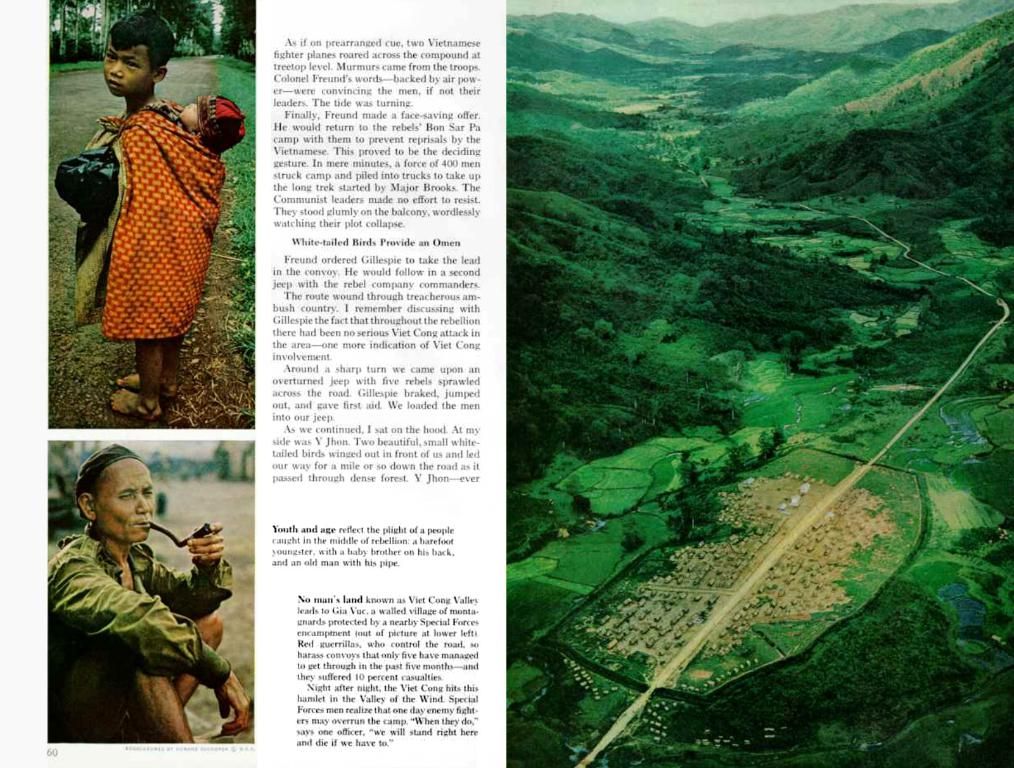Harvard scholarship award but U.S. authorities deny entrance
The U.S. Department of Homeland Security revoked Harvard University's Student and Exchange Visitor Program (SEVP) certification in May 2025, leaving international students like David Gayle in uncertainty about their status.
David Gayle, a 29-year-old political advisor from London, found himself in a precarious situation when he received the news. At the time, he was in the midst of his final exams for his Master's in Public Policy at the Harvard Kennedy School.
"I felt like an illegal alien, thousands of miles from home," Gayle recounted. "I was suddenly facing the realities of an unfamiliar country, with its complex immigration laws and heightened political tensions."
As the news broke, Gayle's phone was inundated with messages from concerned family, friends, and acquaintances. Many were trying to comprehend the unprecedented situation and its potential implications.
"We weren't surprised, exactly," Gayle explained. "The idea of suspending the International Enrollee Certificate had been circulating for a while. But no one thought it would actually happen."
Harvard University, which fully funded Gayle's studies through the Kennedy Memorial Trust Scholarship, swiftly challenged the decision, filing a complaint and a motion for a temporary restraining order. The court granted Harvard's motion, allowing the University to continue enrolling international students and scholars while the case proceeds.
Despite the temporary reprieve, Gayle remains uncertain about his future. If he is allowed to resume his studies, he will grapple with the fear of potential government interference. Conversations with other international students have revealed a deep sense of distrust towards the U.S. government.
"This is the government we thought represented democracy," Gayle said. "This leads to a profound mistrust towards a country that, for better or worse, is the leading country of the free world."
As he contemplates his options, Gayle is acutely aware of the significant impact such decisions can have on the future of international students, research, and diplomacy.
"The loss would be significant," he mused. "Humans aren't very good at estimating connections, so we're dealing with a shortsightedness regarding the value of the students who can no longer study in the U.S."
Regardless of the outcome, Gayle remains steadfast in his resolve to pursue public service. The events of the past weeks have only reinforced his commitment to serving his community and contributing to meaningful change.
"The people at Harvard have made me feel at home," he said. "They've created a community of scholars from around the world that feels like family. But the government might not want me."
[1] Harvard University responds to DHS decision to revoke SEVP certification: https://www.harvard.edu/news/2025/05/harvard-university-responds-dhs-decision-revoke-sevp[2] Harvard files motion for temporary restraining order to uphold international students' access: https://www.harvard.edu/news/2025/05/harvard-files-motion-temporary-restraining-order-uphold-international[3] U.S. Department of Homeland Security revokes Harvard's SEVP certification: https://www.harvard.edu/news/2025/05/u.s.-department-homeland-security-revokes-harvards-sevp-certification
"What if my education-and-self-development journey is disrupted due to politics?," David Gayle pondered, confronted by the complexities of United States' immigration laws and heightened political tensions. As the news of Harvard University's SEVP certification revocation spread, Gayle faced a general-news tide of uncertainty and distrust towards the US government, sensing a potential erosion of democracy's values and the future of international students, research, and diplomacy.








